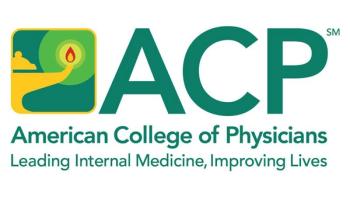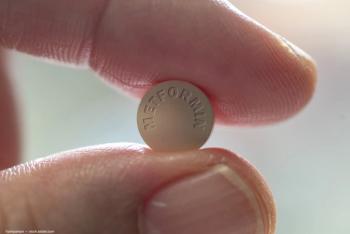
Aflibercept 8 mg data shows durable vision gains at extended dosing intervals for wet AMD
According to Regeneron, visual gains and safety of aflibercept 8 mg remained consistent with the established profile of aflibercept 2 mg injection.
Regeneron Pharmaceuticals Inc. released positive, two-year (96 weeks), topline data from the pivotal PULSAR trial investigating aflibercept 8 mg in patients with wet age-related macular degeneration (wAMD).
According to a company news release, during the clinical trial, aflibercept 8 mg patients were initially randomly assigned to either 12- or 16-week dosing intervals (after three initial monthly doses) and were able to shorten or extend dosing intervals if pre-specified criteria were met.
The company also noted in its release the longer-term data follow the positive two-year results for PHOTON with diabetic macular edema (DME), with PULSAR similarly demonstrating that the vast majority of aflibercept 8 mg patients with wAMD were able to maintain or further extend their dosing intervals.
Among those who completed the two-year follow-up:
- 88% were on a ≥ 12-week dosing interval at the end of two years.
- 78% maintained ≥ 12-week dosing intervals throughout the two-year study period, compared to 83% throughout the first year of study (48 weeks).
- 71% met the extension criteria for even longer dosing intervals, including 47% for ≥ 20-week intervals and 28% for 24-week intervals.
- Of those assigned to ≥16-week dosing regimen at baseline, 70% maintained ≥ 16-week dosing intervals throughout the two-year study period. At the end of two years, 78% were eligible for ≥16-week dosing, with 53% eligible for ≥ 20-dosing week intervals.
Charles C. Wykoff, MD, PhD, director of Research at Retina Consultants of Texas and a trial investigator, explained it was great to see aflibercept 8 mg deliver promising results.
“In the PULSAR trial, aflibercept 8 mg achieved impressive durability, while importantly maintaining visual acuity gains from year one through year two,” he said in the news release. “These data are consistent with the results from the PHOTON trial in diabetic macular edema, with both trials demonstrating a consistent safety profile with substantially fewer treatments than EYLEA.”
If approved by regulatory authorities, Wykoff said in the news release, aflibercept 8 mg has the potential to become the new standard of care for diabetic macular edema and wet age-related macular degeneration.
According to Regeneron, PULSAR (N = 1,009) is a double-masked, active-controlled pivotal trial evaluating non-inferiority of aflibercept 8 mg 12-week (n = 335) and 16-week (n = 338) dosing regimens compared to an 8-week dosing regimen for EYLEA® (aflibercept) Injection (n = 336). All patients received three initial monthly doses. The PULSAR trial met its primary endpoint last year with aflibercept 8 mg patients achieving clinically equivalent vision gains to EYLEA. Through two years, vision gains were sustained and remained largely consistent with the results at one year.
In PULSAR, the safety of aflibercept 8 mg continued to be similar to EYLEA through two years and remained consistent with the known safety profile of EYLEA from previous clinical trials for wAMD. There were no cases of retinal vasculitis, occlusive retinitis or endophthalmitis in the aflibercept 8 mg group. The rate of intraocular inflammation was 1.3% for the aflibercept 8 mg group and 2.1% for the EYLEA group. Anti-platelet trialists' collaboration-defined arterial thromboembolic treatment-emergent adverse events occurred in 1.8% of patients treated with aflibercept 8 mg and 3.3% of patients treated with EYLEA.
George D. Yancopoulos, MD, PhD, Board co-Chair, president and chief scientific officer at Regeneron, and a principal inventor of EYLEA, lauded the results.
“Through one and two years of treatment, aflibercept 8 mg has repeatedly demonstrated unprecedented durability in maintaining clinically meaningful outcomes with extended dosing regimens for patients with retinal disease,” Yancopoulos said in the news release. “Throughout the development of aflibercept 8 mg, we have focused on meaningfully transforming the treatment of retinal disease for patients. With PHOTON and now PULSAR, we are proud to have produced landmark, long-term results that may help to reduce the treatment burden for the millions of people living with wet age-related macular degeneration and diabetic macular edema around the world.”
The two-year data from PULSAR are planned for presentation at an upcoming medical meeting. The two-year data from the pivotal PHOTON trial for aflibercept 8 mg in DME were presented at the American Society of Retina Specialists annual meeting held recently in Seatte.
Aflibercept 8 mg is investigational, and its safety and efficacy have not been fully evaluated by any regulatory authority. Aflibercept 8 mg is being jointly developed by Regeneron and Bayer AG. In the U.S., Regeneron maintains exclusive rights to EYLEA and aflibercept 8 mg. Bayer has licensed the exclusive marketing rights outside of the U.S., where the companies share equally the profits from sales of EYLEA and aflibercept 8 mg following any regulatory approvals.
Aflibercept 8 mg clinical trial program
According to the company’s news release, PULSAR in wAMD and PHOTON in DME are double-masked, active-controlled pivotal trials that are being conducted in multiple centers globally. In both trials, patients were randomized into 3 treatment groups to receive either: aflibercept 8 mg every 12 weeks, aflibercept 8 mg every 16 weeks, or EYLEA every 8 weeks. The lead sponsors of the trials were Bayer for PULSAR and Regeneron for PHOTON.
Moreover, the company noted that patients treated with aflibercept 8 mg in both trials had 3 initial monthly doses, and patients treated with EYLEA received 3 initial doses in PULSAR and 5 in PHOTON. In the first year, patients in the aflibercept 8 mg groups could have their dosing intervals shortened down to an every 8-week interval if protocol-defined criteria for disease progression were observed. Intervals could not be extended until the second year of the study. Patients in all EYLEA groups maintained a fixed 8-week dosing regimen throughout their participation in the trials.
Newsletter
Keep your retina practice on the forefront—subscribe for expert analysis and emerging trends in retinal disease management.




























